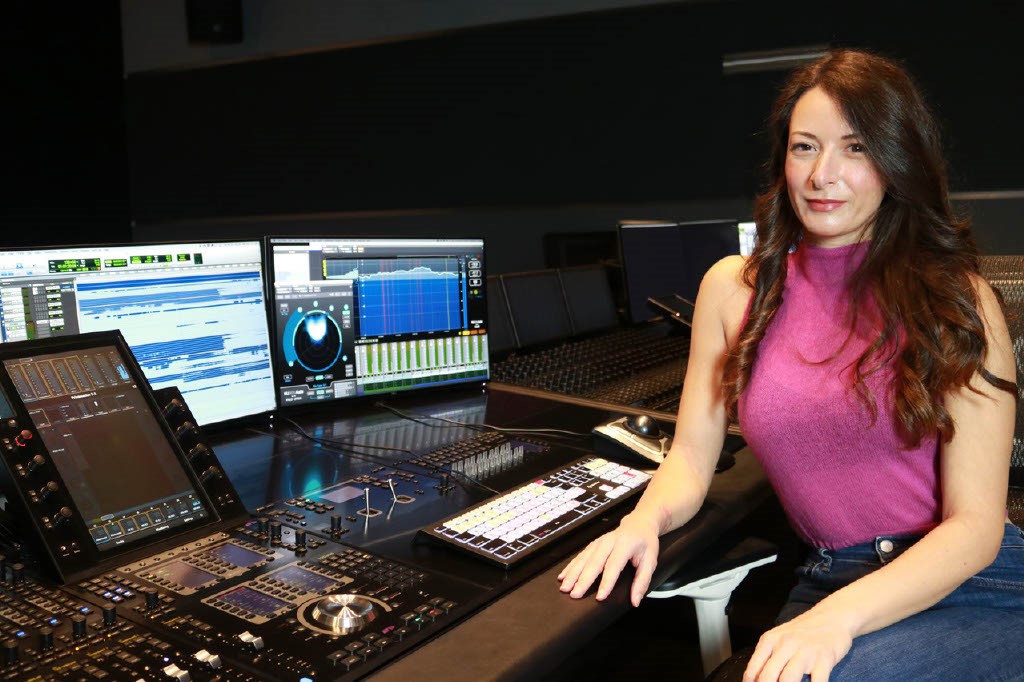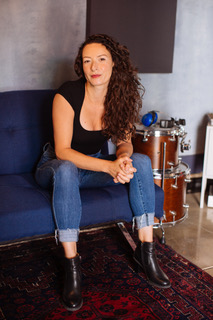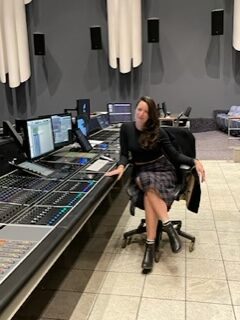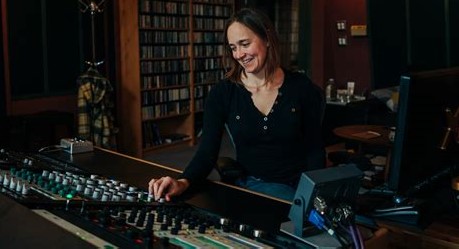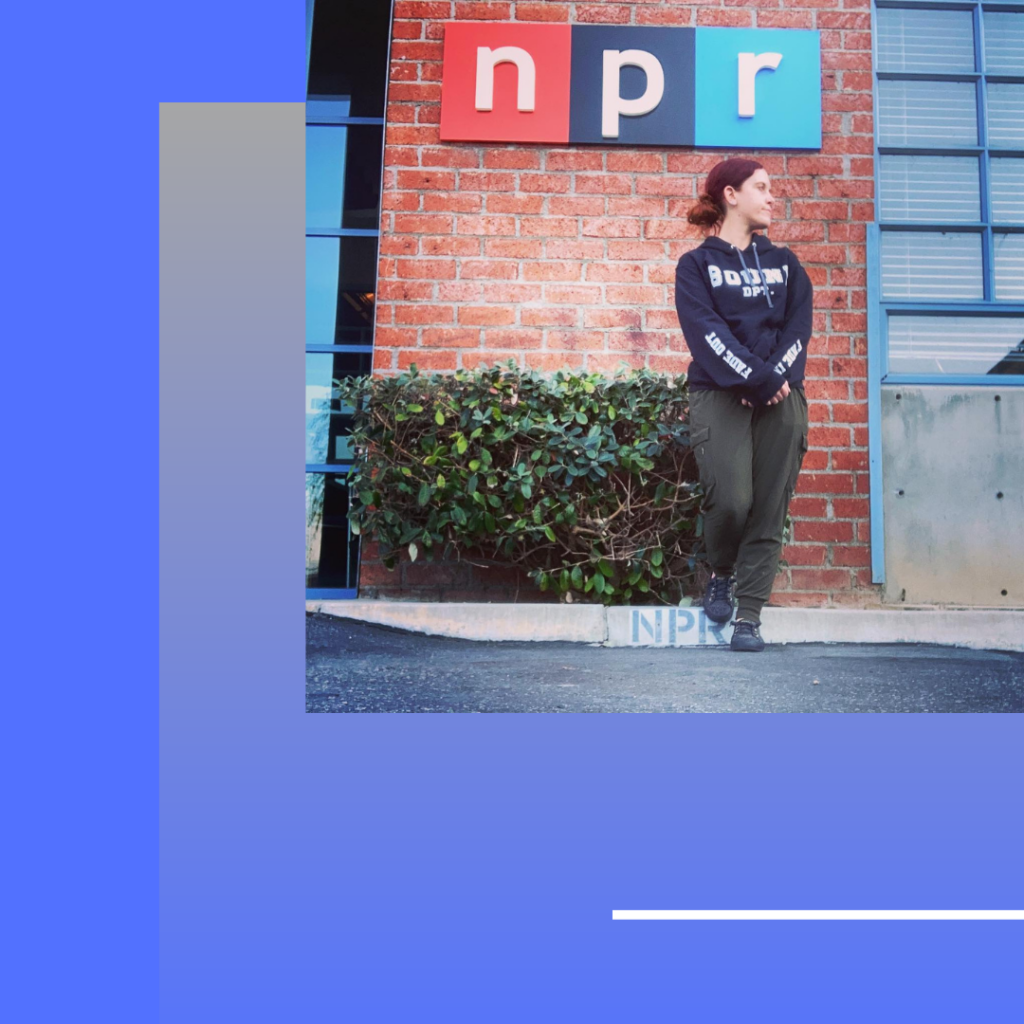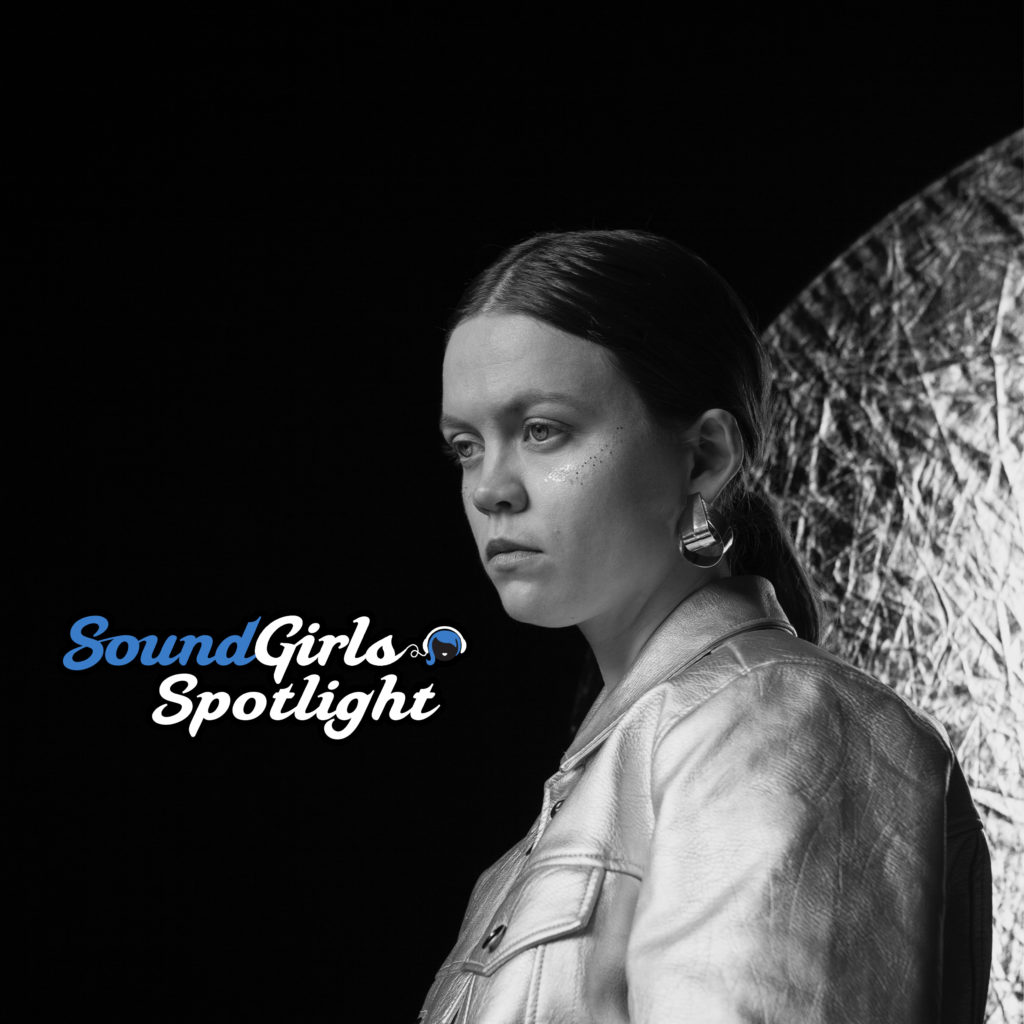Alexandra Fehrman (She/Her) is a seasoned Re-Recording Mixer and Supervising Sound Editor with over two decades of experience in the audio industry. Her journey began in high school when a glimpse into a recording studio’s control room sparked a lifelong fascination with sound. That early curiosity led her to spend countless hours apprenticing in studios—learning the craft from the ground up and finding a natural affinity for the technical and creative demands of audio engineering.
Alexandra’s background is deeply rooted in music. From childhood, she was surrounded by a family that cherished sound—her grandfather a guitar player, her father a passionate music lover, and an uncle who introduced her to the engineering side of audio through his work on musical instruments and technology patents. Though she began with guitar and cello lessons, it was the process behind the music—the how and why of sound—that truly captivated her.
After attending junior college and earning a certificate in Recording Engineering from Musicians Institute, Alexandra continued her career in music recording studios before transitioning into post-production audio in 2006. Since then, she has worked with top-tier clients including Apple TV+, Amazon, A24, Sony, Netflix, CBS, Lionsgate, and Searchlight, among others. Her recent work includes frequent collaborations with Signature Post and Sony.
Known for her technical precision, creative intuition, and collaborative spirit, Alexandra brings both artistry and expertise to every project. Whether mixing complex soundscapes or overseeing editorial workflows, her passion for storytelling through sound is evident in every frame she touches.
Career Start
How did you get your start?
My start in music was well, because I asked, and I was willing to trade time for knowledge. At first I wasn’t making money at the recording studio, and I was eager to learn so I would take care of the studio by tidying up, wrapping cables, loading gear and I just kept showing up. The lead engineer was happy to share a lot of mixing theory with me, and eventually after he taught me to use the board and 2” machine, he trusted me to track bands, and then assist him mixing. After that I went to school, and then started interning and eventually working at some studios in LA. I was working tough hours at multiple jobs, and at the same time saw a couple of films that got me very interested in mixing for film, so I started to look for jobs in post-production.
It took me a long time to find an “in” to Post Production. I couldn’t find a job in sound for film right away so I took a job at a video post production house and trained to be an overnight telecine operator, which meant I would transfer film to tape while syncing the original audio from set to the picture. I was an assistant to a colorist. My shift was from 3am-11am. I had strategically gotten a job at a video post house that at the time was owned by the same company as a sound facility I had long wanted to work for, called Todd AO. I then checked the internal job postings nightly before I started my shift until I spotted a listing. I ended up training there after my overnight shift during the days for 6 months (unpaid) until something opened up, and then I became a stage technician.
How did your early internships or jobs help build a foundation for where you are now?
I learned that hard work really does pay off, people will notice and trust you if they see you show care for your work, even when it’s just organizing the sugar packets. One studio I worked at had a velvet couch that us interns were responsible for vacuuming perfect stripes onto using a small brush attachment. Some interns thought it was trivial, but it was really a way for the studio owner to measure attention to detail.
I also learned a lot about the business outside of the control room, as an intern you’re more in touch with the requests of the clients, it was good to learn what kind of expectations people had, and how important food is to any session!
What did you learn interning or on your early gigs?
One big thing I learned is that trust is earned, and it’s important to learn how to navigate that uncomfortable time while you are gaining artists, or clients’ trust. In my first job, when I was given the honor of tracking bands as a teenager, often people would be upset paying for a session being engineered by someone so young, and it was always a bit awkward assuring people I could do the job. I learned how to be comfortable and confident even during that pressure, and no matter what kind of engineering you do, that pressure is part of the job, so it was really helpful for me to learn to work through that early on.
Did you have a mentor or someone that really helped you?
There have been so many people who have shared knowledge and helped me along the way in different stages of my career.
My first mentor was Don Lithgow who was the owner of the first studio I worked at called DML Studios. He really taught me a lot about mixing, and running a room both technically, and energetically.
Another mentor that stands out is Greg Schorer, a Supervising Sound Editor. He spent a lot of time teaching me how to edit sound fx, and foley. He would give me scenes to practice cutting and spend time critiquing my work in a way that was very helpful and gave me a skillset that would help me continue to grow as a sound designer and supervising sound editor.
I also had the great pleasure of meeting and working with picture editor Darrin Navarro when I was mix teching on a film called Killer Joe. He later introduced me to some filmmakers with whom I collaborated on various short films that eventually led to mixing dialogue, music and fx on my first television show.
Career Now
What is a typical day like?
On a mix day, COFFEE, then I check the layouts on my board, I check my session set up, I take a listen to a sample of my production sound, set some start parameters, and then start digging into the mix. During the first days of a mix of either an episode, or a reel of film, we are really in the tracks sculpting our first pass of the mix. On playback days, it’s a little different, we’ve cleaned up our mix, investigated all of the tracks, balanced and made thousands of choices to present while still keeping many options open, and easy to call up should the direction of a scene change sonically.
How do you stay organized and focused?
I lay down a lot of markers, I use color coding, and region groups to leave notes for myself, and for sound editors to communicate with me. I also take a lot of notes while I watch the film or show for the first time ahead of the mix so I know what we’re about to tackle.
What do you enjoy the most about your job?
I enjoy having the ability to share feelings with an audience through sound. It’s so satisfying to know that we are creating the aural environment for how the audience is experiencing a film. I love that we can support the story invisibly.
I do sometimes mix or visit other facilities, and what I like best about that is seeing different work flows, or set ups, being able to have conversations with a new group of mixers about new plug-ins etc.
What do you like least?
Especially in the winter, it’s really tough working in a room without windows during all of the daylight hours.
When I’m working on a stage I haven’t mixed on before, it always takes a moment to adjust, learn the unique sound characteristics of the room, and calculate what it means for the translation outside of that room.
What is your favorite day off activity?
An ideal day would include a hike, laying outside with a book maybe, and listening to some records.
What are your long term goals
My long term goals are to keep growing, and continue working with filmmakers who really like to collaborate during the sound process. I also have a dream of one day opening a sound post-production workshop allowing new filmmakers to go through the process of what to expect during sound post, and to learn how much sound can shape a film.
What if any obstacles or barriers have you faced?
Throughout my career I have faced many barriers, it’s a competitive field, and with high levels of competition, always comes barriers, especially when you show up and you weren’t exactly what they expected. I used to just go by Alex.
How have you dealt with them?
I don’t think it was the correct way to deal with it, but I took it as a challenge, and knew I had to work that much harder for my work to be noticed.
Advice you have for other women and young women who wish to enter the field?
Don’t get discouraged if things don’t develop right away, it takes a lot of time to make connections. Get your work in front of as many people as you can. A lot of people like to work with people they have worked with before because they can trust the quality of the work, so having sessions or examples of your work ready to share is really helpful.
One other thing to note is that sometimes you have to take a step back to take one forward, these career paths are often nonlinear, and in my case, every time it seemed I was taking a step back, I learned something new that helped strengthen my skillset in the long run.
Must have skills?
Pro-tools is a must in film post-production, being proficient and able to utilize quick keys for fast navigation is expected. For mixing, familiarity with the s6, and Dolby Atmos is also expected.
Favorite gear?
Plug-ins- Love the Valhalla stuff, verbs and delays. Like so many of us, I love fabfilter eq’s and compressors, and the Saturn 2 saturator is great too.
Physical gear- Moog Sub Phatty- not specific to my job, but my favorite impulse pick-up ever.
Parting Words
I’m so excited to be interviewed by SoundGirls, it’s such an incredible organization, and I’m always inspired by the stories I’ve heard throughout the years. Thank you.
